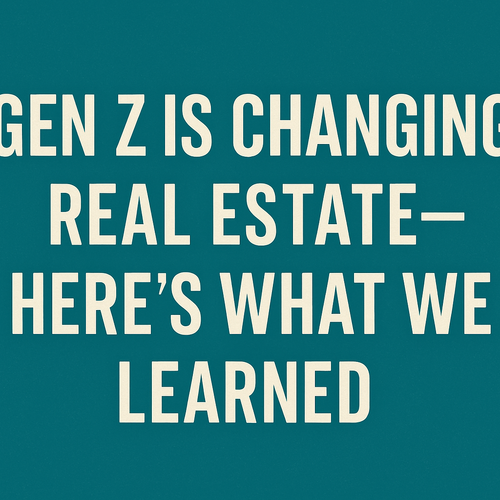In recent years, the term “Silver Tsunami” has gained traction among economists, demographers, and housing experts. It refers to the anticipated wave of Baby Boomers—those born between 1946 and 1964—who will begin transitioning out of their current homes, either by downsizing, relocating, or moving into age-adapted or assisted living communities.
Unlike a sudden crash or market disruption, the Silver Tsunami is not expected to arrive all at once. Instead, it’s unfolding gradually, as a powerful demographic tide that will influence housing inventory, regional demand patterns, and multi-generational planning for decades to come.
And we believe it's time to talk about it—not just in terms of market impact, but with empathy and practical guidance for the people at the center of it.
Understanding the Numbers Behind the Movement
According to the U.S. Census Bureau, by 2030, all Baby Boomers will be at least 65 years old. That single statistic sets the stage for a generational housing transition we haven’t seen before. Millions of homes across the country—many owned outright, many larger than needed—are poised to re-enter the market over the next 10–20 years.
But this isn't just about volume. It's about timing, preferences, and readiness.
Some Boomers are choosing to age in place, investing in renovations and in-home care.
Others are seeking more accessible floorplans, walkable neighborhoods, or proximity to family.
Many are waiting—unsure of where to go, how to manage the process, or who to trust along the way.
This variation is why the Silver Tsunami is better understood as a trend than an event—one that will affect both supply and demand, with localized impacts depending on region, infrastructure, and community offerings.
Implications for the Real Estate Market
For housing professionals and economists alike, the implications are layered:
Inventory Shifts: As more long-held homes become available, particularly in suburban and rural areas, we may see increased options for move-up buyers and younger households currently priced out of the market.
Demand for Rightsized Living: There’s growing interest in single-level homes, communities with health and wellness amenities, and smaller residences that still allow for comfort, independence, and community.
Emphasis on Planning: The complexity of later-in-life moves means families are engaging in more collaborative decision-making—balancing estate planning, health considerations, and financial timelines.
Regional Disparities: Areas with high concentrations of Baby Boomers will likely experience more noticeable shifts in housing stock and pricing than others.
These market dynamics are not theoretical—they’re already emerging. And real estate professionals who are informed, prepared, and service-minded will be essential in navigating what comes next.
What This Means for Homeowners and Their Families
If you or a loved one are part of this demographic, it’s important to understand that you are not alone—and that there are thoughtful ways to approach the question of “what’s next?”
The decision to sell a long-held home is often about much more than real estate. It involves memory, emotion, financial planning, and logistical coordination. Whether you're managing this on your own or helping a parent through the process, here are a few key considerations:
Timing: Selling doesn’t need to be reactive. Planning ahead allows for better financial positioning and less stress.
Preparation: A well-prepared home with clear disclosures and thoughtful updates can attract strong interest—even in a shifting market.
Support: The right professionals can simplify every stage of the process, from valuation and downsizing to relocation support and estate coordination.
Why This Work Matters to Us
We work with people across all generations, and we’re committed to serving with clarity and care—especially when the path forward involves major life transitions. We understand that this isn’t just about real estate—it’s about change, and the people navigating it.
If you’re thinking through what comes next—or supporting someone else who is—our role is to offer guidance, resources, and a steady hand when you need it most.
Robin, Kevin and Sophie
Kinney and Renwick Team
License #'s: S067935 | BS0141620 | S197254
[email protected]
(775) 391-8402
kinneyandrenwickteam.com



